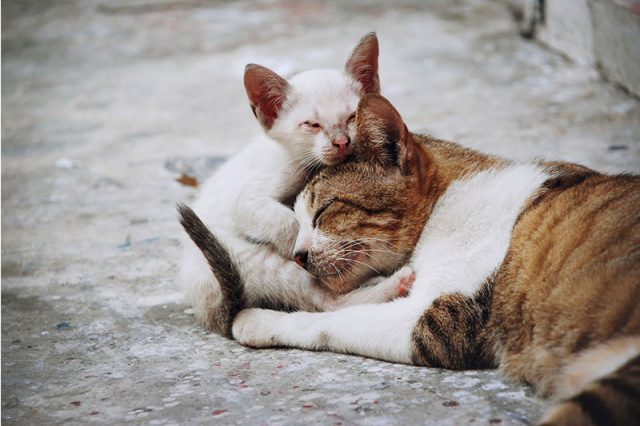A co-founder of an animal organization called on the Bureau of Corrections (BuCor) to reconsider banning stray cats in its prison facilities.
Rina Ortiz, co-founder of the Biyaya Animal Center, on January 9 urged the agency to spay or neuter the strays instead.
She also aired sentiments against using euthanasia or killing the animals.
Ortiz posted the appeal on social media after reading a news report that BuCor has decided to ban stray cats and dogs in its prison facilities nationwide.
“This is for public safety, control, and prevention of the spread and eventual eradication of animal rabies in the community,” the agency was quoted as saying in a Facebook post.
“This is part of the preventive measures to protect K9 units posted at the gates from ticks and fleas,” it added.
In the New Bilibid Prison (NBP) in Muntinlupa, the BuCor has ordered its Security and Escort Command to “coordinate with and seek assistance from Muntinlupa City Veterinarian Office for the conduct of regular rescue operations and impounding of the stray dogs/cats within the NBP Reservation especially in the premises surrounding the National Headquarters building.”
The NBP has also asked its personnel and their dependents living in the reservation “to ensure that their pets are leashed or confined within the premises of their houses or fenced surroundings and have them regularly vaccinated against rabies.”
Ortiz then urged the bureau to spay or neuter the strays, saying it would be better instead of banning them.
“Having done kapon for the cats in Women’s Correctional last year, it is surprising to see the headlines that BUCOR wants to get rid of them totally,” she said on Facebook, referring to the Correctional Institution for Women.
“Reaching out po to Sir Catapang, offering you an alternative solution. #kaponangsolusyonhinditapon, hindi din po sana euthanasia,” Ortiz continued, referring to BuCor Director General Gregorio Catapang Jr.
She also shared links to reports of cats being beneficial to inmates and vice-versa.
Ortiz shared a video report of inmates at the Pendleton Correctional Facility in the United States caring about cats.
She also shared a 2023 New York Times feature that reported about inmates in Chile finding “solace in the hundreds of stray cats.”
Col. Helen Leal González, prison warden in the Chilean facility, said that the felines’ presence “has changed the inmates’ mood, has regulated their behavior and has strengthened their sense of responsibility with their duties, especially caring for animals.”
“Prisons are hostile places,” she added. “So of course, when you see there’s an animal giving affection and generating these positive feelings, it logically causes a change in behavior, a change in mindset.”
The NYT report said that prisoners take care of the cats, who, in turn, give them “love, affection and acceptance” in a “lockup notorious for overcrowding and squalid conditions.”
Another example is former senator Leila de Lima, who was previously in detention for six years at the Philippine National Police Custodial Center in Camp Crame.
She previously said that some cats in the facility had kept her sanity “intact.”
Although she had human visitors, De Lima said that it was the felines who kept her company and kept her sane the most during her detention. She described them as her “constant source of joy and good vibes.”
When she was released on bail, De Lima took five cats with her and made sure that those she left behind would be cared for by her former detention guards.










